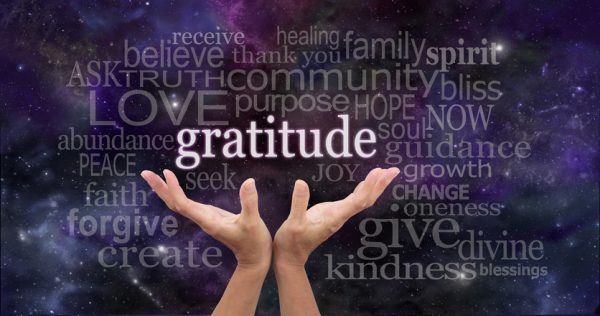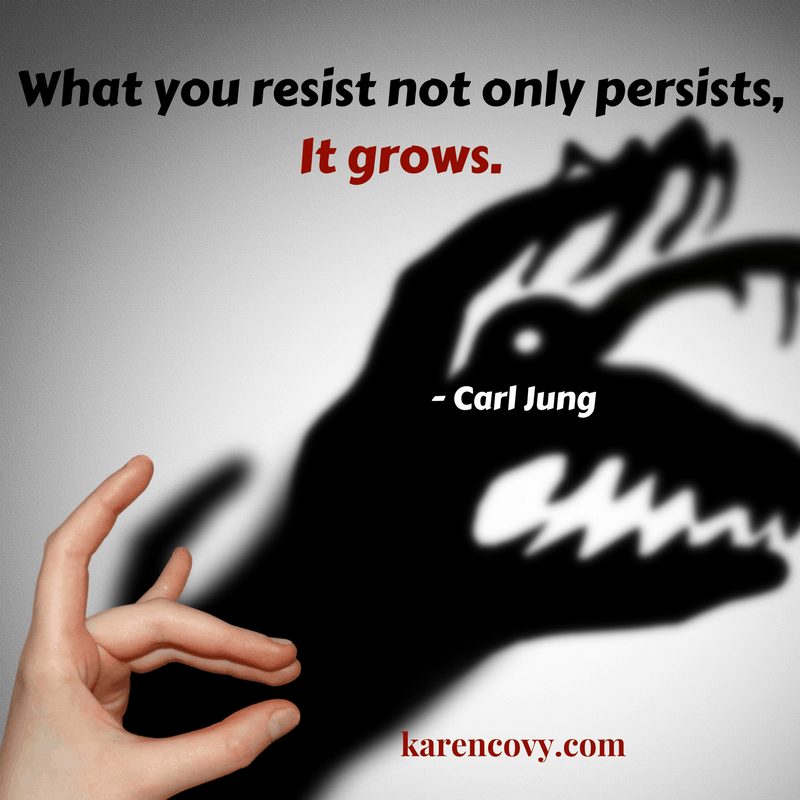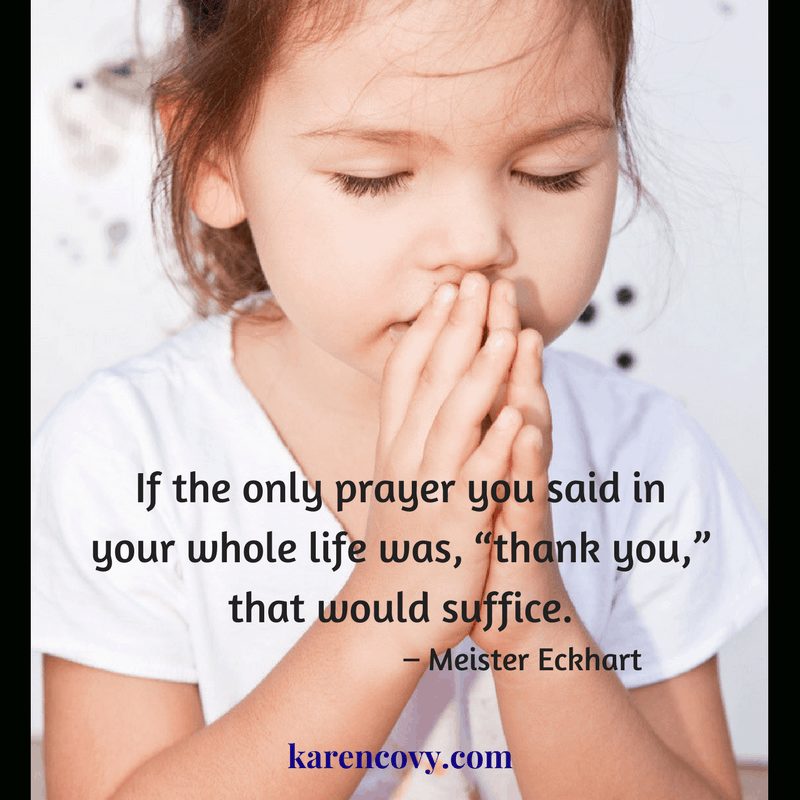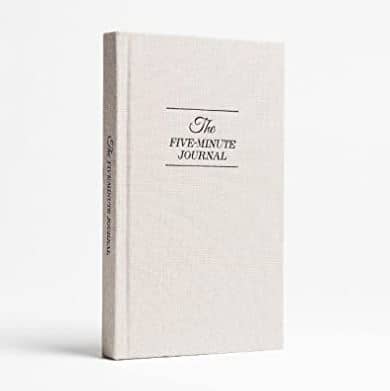You know you “should” feel it. Everyone from scientists, to psychologists, to the most popular self-help gurus, touts the benefits of practicing gratitude. Yet, when you’re in the middle of a divorce (or trying to recover from!) a bad divorce, you’re not usually sitting around counting your blessings! Sure, being grateful when life is good is easy. But how can you be grateful when your entire life has been shattered?
If You Want to Know How to Be Grateful, You’ve Got To Start Where You Are
For most of us, practicing gratitude requires a massive mindset shift. We spend our days frantically running from one thing to the next. We rarely find a quiet moment to think or to relax.
People these days are constantly stressed out by all the things they don’t have time to do. We judge ourselves for what we’re not. We condemn ourselves for what we are.
That's especially true when we're going through something like divorce!
Being grateful, as simple as it is, feels like an impossible task. We honestly can’t think of anything we have to be grateful for.
Sure, we all know we "should" count our blessings. But doing something simply because we "should" do it never feels so good.
When we practice gratitude simply because we know we "should," we transform a blessing into an obligation. Not only does that strip gratitude of it's benefits, but it robs us of our joy. Practicing gratitude becomes just one more burden in our already over-committed lives.
To make matters worse, when we fall short of the mark, and DON'T practice gratitude when we know we "should" that becomes yet another reason to beat ourselves up. It becomes just one more thing we are failing at.
The question is, when you’re mired in sorrow, anger, or negativity, how do you turn it around? How do you feel grateful for something when you're at a time in your life when you don't feel grateful for anything?

Developing an "Attitude of Gratitude"
Becoming more grateful starts in your head. It starts with what you believe is possible.
Before you can BE more grateful (no matter what's going on in your life!) you first must BELIEVE that you can be grateful, even when your life is a hot mess. That doesn't mean you have to plaster a fake smile on your face and pretend your life is great. But you do need to allow for the possibility that you can feel grateful for something even when your life sucks.
Second, you need to WANT to be grateful. Being grateful because that's what you "should" be won't work! You have to actually WANT to be grateful, and be WILLING to try. While that may seem obvious, when your life sucks it's much easier to wallow in your sorrows than it is to count your blessings.
Finally, it helps to connect with your "Why." You need to understand why being grateful matters to you. What do you hope to gain by focusing on gratitude? Why do you care?
Once your reasons for starting a gratitude practice become clear, following through and actually being grateful can easily become a priority instead of an afterthought.

The Benefits of Gratitude
If figuring out what you could possibly be grateful for when you're dealing with a divorce seems impossible, try looking at the effect that gratitude has had in others' lives. Mystics and sages as well as scientists and priests have touted the benefits of gratitude.
In 7 Scientifically Proven Benefits of Gratitude, psychotherapist Amy Morin identifies the ways that science has shown that gratitude can change your life.
- Gratitude improves your relationships. A 2014 study published in Emotion found that thanking a new acquaintance makes them more likely to want to form an ongoing relationship with you.
- Gratitude improves your physical health. Not only do grateful people experience fewer aches and pains, but they are more likely to take care of their health.
- Gratitude improves your psychological health. Being grateful helps you reduce toxic emotions ranging from frustration and envy to anger and regret. Practicing gratitude makes you feel happier.
- Gratitude enhances empathy and reduces aggression. A 2012 study showed that grateful people are less likely to retaliate against others, even when they are given negative feedback. They were more sensitive and empathetic, and less likely to seek revenge.
- Gratitude makes you sleep better. In a 2011 study, subjects who spent 15 minutes writing down what they were grateful for before bed slept better and longer.
- Gratitude improves your self-esteem. Studies have shown that gratitude reduces our tendency to negatively compare ourselves with others. Grateful people are better able to accept others’ accomplishments without feeling bad about themselves.
- Gratitude increases your mental strength. Being grateful not only reduces stress, but it helps you overcome trauma. Two separate studies found that practicing gratitude decreased the instance of post-traumatic stress disorder in soldiers and increased resilience in victims of terrorism.

5 Ways to Be Grateful Even When Life is Rough
Even if you're sold on the benefits of gratitude, you still might wonder how in the world you're supposed to be grateful while you're struggling with divorce! After all, it's hard to count your blessings when you're wandering through the muck and misery that goes hand-in-hand with ending your marriage!
To help you out, here are five different gratitude practices you can use to start feeling grateful when you don't feel like feeling grateful. Each one is simple. Each one will take you less than fifteen minutes a day.
1. Start a Gratitude Journal.
Spending five minutes every morning and evening thinking about what you have to be grateful for can completely change your day.
Dr. Robert Emmons and Dr. Michael E. McCullough conducted a study where they instructed two groups of participants to write 10 sentences a week on various topics. One group wrote about things they were grateful for. The other group wrote about things that displeased them. A third group wrote about random topics. At the end of the study, the group who wrote about gratitude were more optimistic and felt better about their lives.
If writing about random things you are grateful for feels too unstructured for you, try using The Five Minute Journal. It’s a handy little book that will help you focus on your blessings, and on your daily “wins.” I’ve used this journal myself on and off for years. Even though I know it shouldn’t matter, having this “official” gratitude journal keeps my daily gratitude practice way more on track.
2. Use a Gratitude Jar.
The idea of the gratitude jar is similar to keeping a daily gratitude journal. The difference is that having a gratitude jar that sits where you can see it all the time can act as a more powerful reminder to count your blessings.
Using a gratitude jar requires you to become aware of the blessings in your life. When something good happens to you, write it down. (You can also write down the bad things that have happened in the past when you realize that they were blessings in disguise.) When you experience an act of kindness, or you achieve a goal (no matter how small), write it down.
Put all of your random writings into the jar. When you’re feeling down, or you can’t think of anything to be grateful for, pull out some of your papers and read them. They will remind you of how many blessings you have that you forgot about! (FULL DISCLOSURE: This idea is based on Tim Ferriss’ “Jar of Awesome.”)

3. Focus on What You Have, Not What You’ve Lost.
Psychologists and quantum physicists both know that what you focus on expands. What’s more, what you focus on, you When you’re going through a divorce and you’re focused on everything you’ve lost, you feel miserable. That’s why listening to sad music when you’re going through a breakup makes you feel so much worse.
Don’t believe me?/Go listen to “Let it Go,” by Idina Menzel, “Since You’ve Been Gone,” by Kelly Clarkson, “Before He Cheats,” by Carrie Underwood, or “Over You,” by Daughtry. How do you feel? Now go listen to “Unbreak my Heart,” by Toni Braxton, “Someone Like You” by Adele, “Let Her Go,” by Passenger, or “Total Eclipse of the Heart,” by Bonnie Tyler. Now how do you feel? Enough said.
If you want to turn your feelings around, stop focusing on what you lost. Focus on what you have. Count your blessings. Make a list of everything you have. Don’t let yourself get up until you’ve written at least 100 things you still have. (Yes, you can!)
4. Think About Those Whose Lives are Even Worse.
Yes, this one is a little bit morbid. But, it still works!
Part of the reason we all walk around feeling so terrible all the time is that we focus on everything we want that we don’t have. We compare ourselves to those who have more than we do. Or, worse, we compare what we have with what we think we “should” have. When our real lives don’t measure up to our ideal of the perfect human life, we feel like crap about ourselves.
Remembering how much better our lives are than 90% of the rest of the world can help put things back into perspective. Sure, when you’re going through a divorce your life sucks for a while. That's especially true if your divorce is not exactly amicable. But, you’re still alive. You have food. You have clothes. You have somewhere to live. You have more opportunities in your life when you’re at your lowest than most people in the developing world have when they are at their best. That may sound corny, but it’s true. Don’t forget about it.
5. Say “Thank You” Every Day.
It’s so simple. Saying, “Thank you” when someone holds a door, or smiles at you for no reason, or does you a kindness. We don’t want to believe that something that simple actually matters. Yet it does.
That’s exactly what Attorney John Kralik learned in 2008. At that time, his law practice was losing money, he was going through a painful second divorce, his relationship with his sons was strained, he was afraid he was going to lose contact with his daughter, he was living in a small, miserable apartment, and he was 40 pounds overweight. While hiking in the hills on New Years Day, Kralik made the life changing decision to focus on what he was grateful for, instead of what he had lost.
In A Simple Act of Gratitude: How Learning to Say Thank You Changed My Life, Kralik documented how writing one thank you letter a day for 365 days changed everything. Little by little, Kralik became financially stable. He lost weight. He gained some real friends. Would that have happened if he hadn’t made saying “thank you,” a daily practice? Pick up his book and see for yourself.

Practicing Gratitude Can Change Your Life
No matter how you cut it, feeling grateful when your life is a hot mess takes discipline. It takes courage. Yet, the rewards you can reap when you do it are both boundless and real.
So many people make the mistake of thinking that, before they can feel grateful they have to DO something, BE something, or HAVE something that isn't in their lives already. They put off practicing gratitude because they feel bad. “I’ll be grateful when I feel better,” they tell themselves.
But, what if that thinking was backwards?
What if feeling grateful - ESPECIALLY when you didn't feel like it - was exactly what you needed to do to make yourself focus on the good, rather than the bad, in life? What if feeling grateful now brought you even more blessings in the future? And what if feeling grateful could actually make you feel GOOD when the rest of your life was decidely BAD?
If all of that sounds a little "airy fairy" and "pie-in-the-sky," I get it. We're taught to think that when something good happens we should feel grateful for it. When something bad happens we're supposed to get upset and wallow in misery. We're not taught to count our blessings regardless of what state we happen to be in!
But what if what we were taught was wrong?
The Gratitude Challenge
Still not buying it?
Here's my challenge: Try it! For 30 days try practicing counting your blessings. Choose one (or all!) of the gratitude practices listed above and do it for at least10 minutes a day, every day. At the end of 30 days, take stock of your results.
- Do you feel better?
- Are you sleeping better, or feeling calmer?
- Do you feel stronger: physically, emotionally or psychologically?
- Has anything changed in your life for the better (big or small)?
- Do you have more blessings in your life now than you did when you started?
If you do - great! If you don't - at least you tried. (Plus it was 100% free!)

The Habit of Being Grateful
Those who enjoy life the most make practicing gratitude a habit. Taking the 30 day gratitude challenge has already helped you to develop that habit. All you need to do now is just keep going and build that habit into a lifestyle.
Will developing a lifestyle of gratitude insure that you won't ever be upset or that have crappy things will never happen to you again? Will you live like Pollyanna in a perfect world filled with rainbows and unicorns forever?
Of course not!
But maybe - just maybe - your world will be a little bit better, a little bit easier, and a little bit happier!
Thanks for reading this!
_______
This post was originally published on November 18, 2018 and updated on November 25, 2021.



I have begun doing this very thing. My relationship of 39 years (and marriage of 32) is ending. I’ve reconciled that I can’t turn around a relationship that is not wanted. Whenever I wallow in self-pity, I remember it can always be worse and that there is much to be grateful for.
That’s fabulous! Yay you! 🙂
I’m sorry.
My husband, who is a Pastor is divorcing me. We married in 2010 and I resided in One state where I worked and he was a Pastor in another state. I quit my job in 2015 because I wanted my marriage to work. After I moved to his state, he began to be cold and unaffectionste. After about six days I asked what I had done and he used profanity and told me I was fake, clingy, had no faith, did not understand ministry, he was not happy with me, that I faked orgazm, and numerous other negative things. He told me to go home. I asked him to pray with he and he said no. I got a flight and as I tried to gather some of my belongings in tears, he stood in the door and said tgstvi just wanted someone to feel sorry for me. Since that time I have been severely depressed, have seen psychiatrists, psychologists, and I cry all of the time. This has been the hardest thing for me. He comes to this town because his family lives here but he never has asked if I need anything. I have not seen him since June 10, 2015. I aid his home off, invested in his church, joined his church and he never acknowledged me as his wife. I need for this pain to go away. I would appreciate any help you can give. Yes, I have prayed and prayed for God to save my marriage even after all of the hurtful things that he said to me.
I can hear how tormented you are. I understand that you want to save your marriage. But, since you asked for my help, I’m going to be honest with you, even though I don’t think it’s at all what you want to hear.
Let me start by saying that, if you want me to tell you how you can save your marriage, or that you should save your marriage, or that you need to pray harder so God saves your marriage, you are probably going to want to stop reading right now and forget you ever found my website. (Sorry!) I’m not trying to be mean. But I don’t think that telling you want you want to hear is going to help you at all. So, know that if you don’t want my advice, stop reading now. If you don’t believe what I say or it doesn’t work for you, that’s totally fine, too. Do what you feel is best for you. It’s your life.
But since you asked me, I’m going to tell you what I think.
First, if you haven’t seen your husband since June, 2015, even though he has been in and out of your town during that time, your marriage is over. (Again, sorry!) There is nothing left to save.
Is that what you want? No. Of course not. But the sooner you finally accept that fact, the sooner you will start to heal.
Second, Like it or not, you’ve got to let go. It’s time. It’s actually way past time. Hanging on to a marriage that’s over is what’s hurting you. I know letting go is hard. But if you want to move out of your pain, that’s the only way to do it.
You’ve got to let go if you want to heal.
Finally, you also might want to take a look at this book: Radical Forgiveness: A Revolutionary Five-Stage Process to Heal Relationships, Let Go of Anger and Blame, and Find Peace in Any Situation, by Colin Tipping. I’ve read it. There is a lot of wisdom in it. You also might want to check out You Can Heal Your Life, by Louise Hay. That, too, is an amazing book.
I wish you the best.
Karen
Karen. I just stumbled upon your email and website. Gotta say girl, I like your responses to people. Thanks for making us strong!
You’re welcome! Glad you like it!
Karen